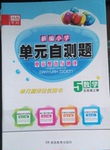题目内容
I ______ you will write me back soon.
[ ]
A. wish B. need C. want D. hope
答案:D

练习册系列答案
 新编小学单元自测题系列答案
新编小学单元自测题系列答案 字词句段篇系列答案
字词句段篇系列答案
相关题目
|
题目内容
I ______ you will write me back soon.
[ ]
A. wish B. need C. want D. hope

 新编小学单元自测题系列答案
新编小学单元自测题系列答案 字词句段篇系列答案
字词句段篇系列答案
|